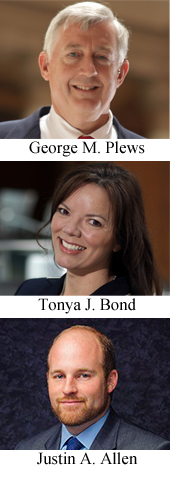Court Finds Criminal Acts Exclusion Does Not Bar Landlord’s Coverage for Methamphetamine Contamination by Tenant
 The Marion County Superior Court recently affirmed insurance coverage for a methamphetamine contamination cleanup. It held that the phrase “anyone to whom you entrust the property for any purpose” under a “Dishonest or Criminal Acts” exclusion does not include tenants in a homeowner’s policy. Thus, this exclusion did not bar a landlord’s coverage for property damage caused by the manufacture of methamphetamine by her tenant.
The Marion County Superior Court recently affirmed insurance coverage for a methamphetamine contamination cleanup. It held that the phrase “anyone to whom you entrust the property for any purpose” under a “Dishonest or Criminal Acts” exclusion does not include tenants in a homeowner’s policy. Thus, this exclusion did not bar a landlord’s coverage for property damage caused by the manufacture of methamphetamine by her tenant.
The landlord leased a single-family home to a tenant. Unbeknownst to the landlord, the tenant used the home to illegally manufacture methamphetamine. Following the tenant’s arrest, an investigation revealed extensive damage to the home caused by the release of hazardous chemical byproducts during methamphetamine production. The county health department condemned the property until the landlord conducted remediation.
The landlord timely tendered notice of an insurance claim under her property policy. The property policy at issue provided coverage for all risks of loss, except those specifically excluded by the policy (i.e, an “all risk” policy). The insurer denied the claim, principally relying on the policy’s “Dishonest or Criminal Acts” exclusion. The exclusion provided:
We will not pay for loss or damage caused by or resulting from:
The insurer also cited an “Ordinance or Law” exclusion to deny coverage.
The parties cross-moved for summary judgment. The insurer argued that the exclusion barred coverage because manufacturing methamphetamine is a criminal act and the property was “entrusted” to the tenant by the landlord through the lease. The insurer also argued that a portion of the landlord’s damages were a result of the enforcement of an ordinance mandating cleanup.
Relying on the well-established principle that exclusionary language must “clearly and plainly” exclude losses to bar coverage, PSRB argued on behalf of the landlord that this provision did not unambiguously exclude coverage for damage caused by methamphetamine production by a tenant. An ordinary policyholder of average intelligence would not read the Dishonest or Criminal Acts exclusion to apply here because: (1) the language surrounding the phrase “anyone to whom you entrust the property” indicates that the exclusion concerns fiduciary relationships, not residential tenants; (2) the insurer used the term “tenants” in numerous other places in the policy where it intended language to apply to tenants, but failed to do so in this exclusion; and (3) the liability coverage in the policy expressly excluded damage from drug manufacture by using a Controlled Substances exclusion, a much more specific exclusion which was not found in the property coverage part.
PSRB also argued that the Ordinance or Law exclusion did not apply because the property damage was not caused by the law requiring cleanup, but rather, the health department order of condemnation was a consequence of the damage inflicted by the manufacture of methamphetamine.
Judge Oakes granted summary judgment for the policyholder.
George Plews, Tonya Bond, and Justin Allen represented the landlord in this case. If you have questions about this or other insurance coverage issues, please feel free to contact George, Tonya, or Justin.
Categorized: News

